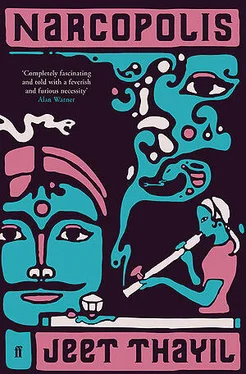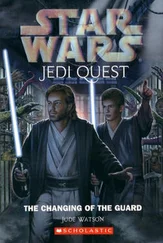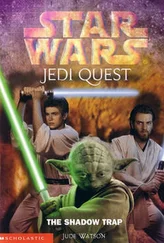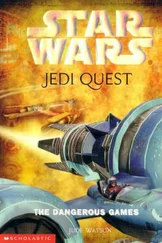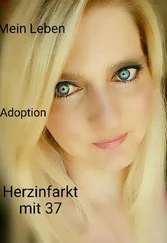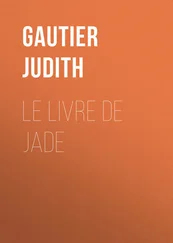*
Rashid was in his room, thinking about indifference. He and his son rarely spoke because conversation was Jamal’s weapon, a way to antagonize his father. He said whatever came into his head, or, more likely, things that had never entered his head before, strange turns of phrase with no relation to reality. The last time they spoke, Rashid had complained about household finances. He’d said that Jamal was not putting enough aside for unforeseen future occurrences. Jamal’s reply: Who gives a shit about all that? Tell the future to go fuck itself. At that point, the conversation had come to an end and Rashid had returned to his apartment, where he’d picked up his prayer beads and gone to his armchair and wondered if some types of communication were better achieved without words. Communication between animals, for example, was wordless and highly effective. Perhaps communication between father and son should be the same, mostly silent. He thought of the strange one-word text messages Jamal and his friends sent each other: ‘gr8’ and ‘rotflmfao’ and ‘ftds’. It was as if they didn’t care whether they were understood, or they took pleasure in being misunderstood, or they’d decided that the rewards of obscurity outweighed the rewards of clarity. They had distilled communication down to its essence: guttural exclamation, partial understanding, indifference. They did not worry about words and what words meant. They were unmoved by tradition. He thought of the burkha-clad teenage girls he saw on the street, openly smoking on their way to or from school. The sight always gave him a small shock. Now it was time to learn something from the young, in this case the usefulness of indifference. Or it was time to relearn it, for it was a lesson he had once known. He went back to his prayers, his thumb and index finger beginning the count. From the courtyard below he heard the sound of children. It was the sound he heard most days, the shouts and cries of small children, a vast army of them, and it seemed to him at those moments that the city was a pen for unchaperoned children, wild boys and girls who were bringing themselves up on their own, begging, stealing, selling, stoning, and that his son was among them, and there was nothing he could do about it because after all this was Bombay and how else could it be?
*
It was a Saturday night and there was a crowd at the door. The club was couples only, so he’d picked up Farheen and they’d ridden to Juhu, an hour in the traffic and more time waiting at the entrance. After twenty minutes he called a number he’d been given and told the woman who answered that he was there, waiting outside, and he didn’t mind leaving if they were full, but he wasn’t going to wait any longer. She came down personally, introduced herself as Natasha and escorted them upstairs. They rode up in a glass elevator fixed to the side of the building. She had an accent he’d never heard before, South American, maybe, and all the way up she was talking on a cellphone, a second phone gripped in her free hand. I’ll try, she said. I promise you, I’ll try. All the way, for three floors, she repeated the promise. Once they were inside, Natasha vanished. Jamal and Farheen wandered around looking for a table but there was no space anywhere, not in the lounge and not at the bar, and the crowd was thicker than Grant Road Station at rush hour.
‘Is it hell?’ Farheen whispered, buffeted against him by the crowd.
‘No,’ Jamal said, ‘it’s cocaine.’
Which it surely was, a cocaine fantasy directed by a maker of Bollywood extravaganzas, because every surface, wherever he looked, was shiny, the bar tops, the low tables, the armchairs and stools. People brandished new cellphones and laptops, and these devices too were shiny: aluminium or steel or white plastic. The ceiling was hundreds of cylindrical light fixtures that changed colour with the beat. Even the toilet tanks had ridges on the side, to keep your drugs safe. He could see it on the faces and smell it in the air, cocaine and MDMA and Ecstasy, new drugs for the new Bombay.
The Russian he was supposed to meet was sitting alone in a lounge area near the rest rooms, an area designed for men or women who were waiting for their partners. And what were their partners doing? The skinny women and buff men he saw around him looked like they wasted no time on ordinary activities such as pissing and shitting. They took their time in the toilets and returned with sniffles and frozen smiles. The smile on his own face was genuine enough. He knew what he was looking at, a vast opportunity made up of many separate smaller opportunities. He tried not to let his excitement show as he negotiated with the Russian, a big man in a coat who never smiled. They did the deal right there at the table, Jamal handing the Russian the coke and the Russian giving him cash. Then the man said he was going to try a little taste. Did Jamal want some too? Jamal replied that he didn’t do coke because it wired him and if he wanted to be wired he preferred coffee, which was cheaper and more reliable. The Russian looked at him in surprise and said Jamal was probably right but it was a good idea to keep such opinions to himself, since he wouldn’t want the word to get out among his customers.
‘Are you Russian?’ Farheen asked the man.
‘Yes, Russian,’ he replied.
‘I never met a Russian before,’ Farheen told him.
‘I’m Boris,’ said the man, ‘like Boris Yeltsin, except I don’t drink so much.’
Farheen said she didn’t know who Boris Yeltsin was.
Boris said, ‘When I was growing up I watched Indian movies, Awara, Mera Naam Joker . I like Raj Kapoor.’
Farheen didn’t know who Raj Kapoor was, and said so.
Jamal smiled and said, ‘She’s never heard of those movies, she’s too young.’
The Russian didn’t smile. He said, ‘Young or old, you should know Raj Kapoor. He is great Indian artist.’
‘We have great actors too, have you heard of Dilip Kumar? Great, great, better than Raj Kapoor. You know Dilip Kumar’s real name? Guess.’
The Russian got up and gathered his cigarettes and cellphone and heavy silver lighter. He hesitated for a minute before he left the table.
‘Yusuf,’ Jamal shouted as the man shouldered his way through the crowd. ‘Yusuf Khan!’
*
Farheen was wearing jeans, because he’d asked her to, and her shoes were so high she was almost as tall as he. She said she wanted a drink, because that’s what people did when they went to a club, wasn’t it? She spoke as if she expected an argument. Get me a nice one, she said, pointing to a black woman in a dress, who held a pink cocktail in a long-stemmed glass. When he came back with Farheen’s drink, she took a sip and smiled her thanks. She looked at the lights on the ceiling, which turned from gold to blue, and she looked at the crowd of people around them, dancing, or moving where they stood. She asked if he felt bad about giving drugs to people who had never learned how to say no, who were paying for their own destruction. Jamal fixed her with a look. He said, Look around, these are my customers. Do you see any Muslims? She said, How do you know there are none here? Look at us, we don’t look Muslim but we are. This wasn’t strictly true. Jamal had started to grow his beard, though he still shaved his cheeks and upper lip. And though she wasn’t wearing a burkha, she was covered up, she was decent, which was more than could be said for the women around her, women of many colours and ages, who came alone and danced alone. They danced and watched themselves in the mirrors. Men bought them drinks and told them jokes. They spoke very little Hindi and some English, but they were fluent in unidentifiable other tongues.
‘There are no Muslims here,’ Jamal told her, ‘which means there’s nothing wrong in selling them drugs.’
Читать дальше
